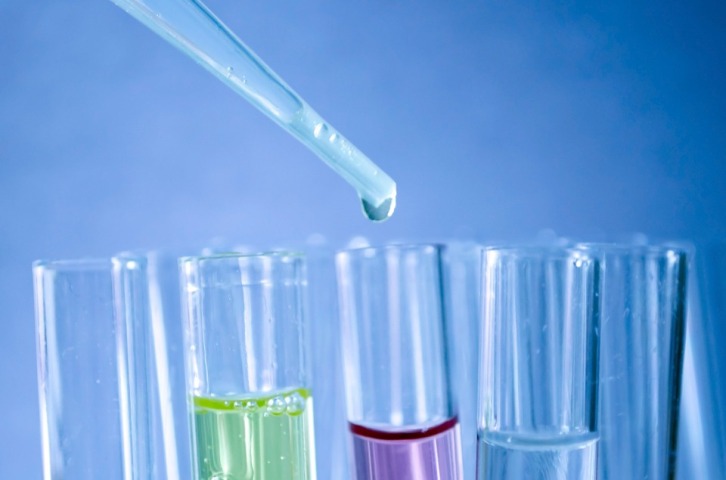IAEA Opens Applications for Global Water Laboratory Network to Tackle Data Gaps
The announcement was made alongside this year’s IAEA Scientific Forum on the sidelines of the 69th IAEA General Conference, under the theme “Atoms for Water”.

The International Atomic Energy Agency (IAEA) has officially opened the application process for laboratories worldwide to join its Global Water Analysis Laboratory (GloWAL) Network, a landmark initiative designed to bridge critical water data gaps and strengthen global water resource management. First announced at the 2023 UN Water Conference, the network is now operational following extensive consultations with countries about their scientific and technical needs.
The announcement was made alongside this year’s IAEA Scientific Forum on the sidelines of the 69th IAEA General Conference, under the theme “Atoms for Water”. The event highlighted how nuclear and related techniques can be used to monitor, manage, and safeguard one of the world’s most precious resources.
Empowering Countries Through Water Science
IAEA Director General Rafael Mariano Grossi underscored the importance of the initiative: “The GloWAL Network exemplifies the IAEA’s dedication to empowering countries, encouraging collaboration, producing data for policymaking, and promoting water’s essential contribution to peace and prosperity.”
With water resources under mounting pressure from climate change, population growth, pollution, and unsustainable extraction, the GloWAL Network is expected to provide countries with tools and expertise to generate and use high-quality, isotope-based water data for informed decision-making.
Jodie Miller, Head of the IAEA’s Isotope Hydrology Section, explained: “The GloWAL Network is not just about data — it is about having the information to make informed decisions. When countries can analyse their own water resources, they gain the tools to protect them.”
What Membership Offers
By joining the GloWAL Network, laboratories can access:
-
Specialized training programmes in isotope hydrology and water quality analysis.
-
Quality assurance support, including proficiency testing to ensure reliable results.
-
A collaborative knowledge-sharing platform connecting experts worldwide.
-
Opportunities to participate in coordinated research projects that feed into global water science.
These benefits aim to strengthen laboratories at all levels of development, from emerging facilities to advanced institutions.
Voices from the Global South
For many laboratories in low- and middle-income countries, membership represents a chance to overcome barriers in water science.
Gilbert Nijimbere, Lecturer at the University of Burundi, highlighted the opportunity: “Joining the GloWAL network is an important opportunity for our laboratory. We’re looking to strengthen our technical capabilities and collaborate with experts to guide us as we aim to learn and contribute more effectively to the water resource challenges we face.”
Addressing Transboundary Water Challenges
The IAEA emphasized that water challenges do not adhere to borders. The GloWAL Network promotes regional and global collaboration, enabling laboratories to:
-
Generate their own comprehensive water data using nuclear and isotopic techniques.
-
Support harmonization of regional data and management approaches, ensuring coordinated responses.
-
Strengthen evidence-based policy development for long-term sustainability.
Tzanka Kokalova Wheldon, Director of the IAEA Division of Physical and Chemical Sciences, stressed: “The GloWAL Network reflects the IAEA’s dedication to support all countries to address water challenges through the application of nuclear and isotopic science.”
A Network Built for Impact
The GloWAL Network is structured through a system of nodes, designed to reflect different levels of laboratory capacity:
-
Development nodes: Laboratories at the entry-level, building basic capacity.
-
Growth nodes: Operational laboratories seeking advanced equipment or training.
-
Anchor nodes: Fully equipped hubs that mentor others and lead regional cooperation.
-
Affiliate nodes: Advanced laboratories interested in collaborative projects.
-
Network partners: Established facilities that work directly with the IAEA to deliver services and programmatic priorities.
Regional networks in Africa, Latin America and the Caribbean, Asia and the Pacific, and Central Asia will tailor priorities to local needs while promoting cross-border scientific partnerships.
Global Endorsements
International research institutions have welcomed the opening of the application process. Angela Lamb, Research Scientist at the British Geological Survey, noted: “The British Geological Survey’s stable isotope facility fully supports the aims and ambitions of the GloWAL Network. We hope that with our technical and scientific support to drive innovation and collaboration, we can help to build a strong and successful network for the future.”
How to Apply
Water laboratories in IAEA Member States are encouraged to:
-
Review eligibility requirements on the GloWAL Network Membership Portal.
-
Submit an application for IAEA review.
-
Join the network and receive tailored support according to their laboratory’s capacity level.
By opening the GloWAL Network to membership, the IAEA aims to democratize access to isotope hydrology and water data science, empowering laboratories across the world to protect freshwater supplies, strengthen resilience against climate change, and ensure sustainable water use for future generations.
ALSO READ
World Bank Launches $1.75 Billion Sustainable Development Bond
India Hosts Global Workshop on Data for Sustainable Development at NSSTA
River Droughts in India Increasing Amid Climate Change
AICTE Chairman Emphasizes Sustainable Development at IIIT Convocation
Delhi's New Drainage Vision to Battle Climate Change and Urban Challenges










